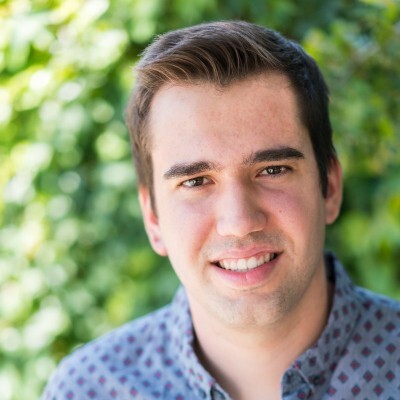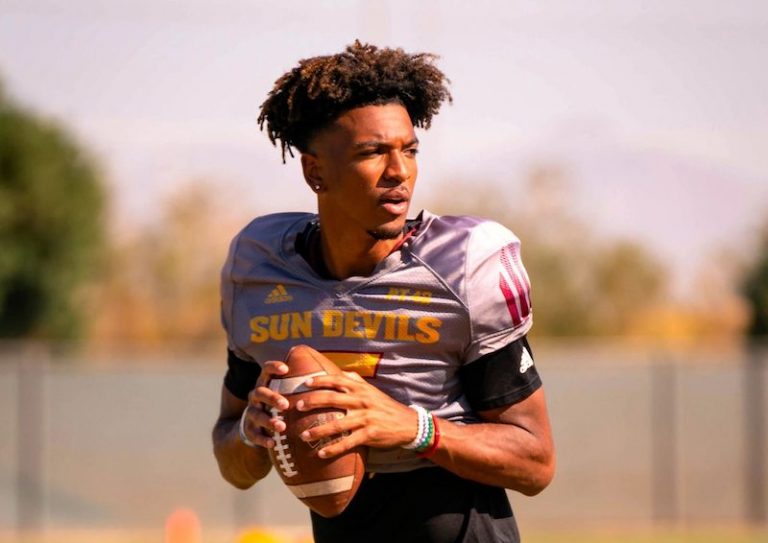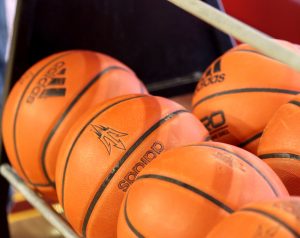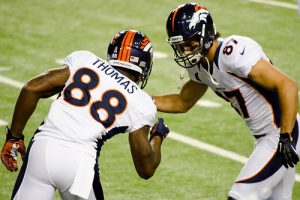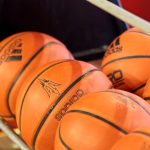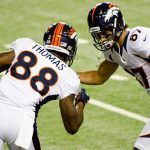Effective July 1, 2021, NCAA athletes were allowed to profit off of their name, image or likeness (NIL) for the first time ever. This means that, while these athletes are still considered amateurs and cannot be paid directly from their colleges and universities, they can now receive money from marketing and endorsement deals as well as events like autograph signings.
The NCAA’s move came under extreme government pressure, as several states controlled by both Republicans and Democrats had passed NIL legislation that was already set to take effect on July 1, and the Supreme Court unanimously ruled that the NCAA could not restrict education-related benefits given to players on June 29, handing the governing authority of college sports a major legal loss.
It marks a major shift in the rapidly changing world of college sports, opening a whole new world of sponsorship opportunities for the more than 460,000 student-athletes in the NCAA and the businesses in their communities.
Although big-name stars like Clemson University quarterback D.J. Uiagalelei or University of Alabama quarterback Bryce Young are getting most of the attention, scoring lucrative deals with big-name brands like Dr. Pepper and CashApp, respectively, the new NIL era presents opportunities for athletes and local businesses looking to capitalize on the ties between a player and their community.
The Reynolds Center spoke to three business owners in the Phoenix area that recently entered into sponsorship deals with Arizona State University star quarterback Jayden Daniels–J.D. Ybanez from Varsity Tavern, Gil Negrete from Negrete Law Firm and Mike Spangenberg from clothing brand StateFortyEight–to understand how they and other small businesses across the U.S. are approaching these deals. Here are five takeaways:
Social media is king (and queen)
Though the new NIL rules allow athletes to go down a more traditional path and star in advertisements for brands that sponsor them, many athletes and businesses prefer to get the word out about their partnership through social media instead. That is the main medium for most of Daniels’ NIL deals so far, especially his one with Varsity Tavern, which Daniels frequently posts about and acknowledges in his Instagram bio.
“They’ve got huge reaches, especially during football season,” Ybanez said. “So many people look at [their] social media. I know a lot of players that I follow, I look at their social media to see what they’re doing.”
In fact, an athlete’s social media following dramatically affects their NIL earnings–even more so than on-field performance, according to experts. Blake Lawrence, founder of NIL database Opendorse, recently tweeted that the average NIL compensation for an athlete with over 50,000 social media followers is over $11,000 while the average NIL compensation for one with under 5,000 followers is around $300. For instance, Fresno State University women’s basketball players Haley and Hanna Cavinder, whose joint account has over 3.6 million followers on TikTok, have one of the most lucrative NIL deals in the NCAA with Boost Mobile despite playing a non-revenue sport in a non-major conference.
Of course, on-field performance still impacts an athlete’s reputation, and by extension, their social media following. Daniels is in his third season as ASU’s quarterback and became a local legend when, as a freshman, he led the Sun Devils to an upset of Pac-12 powerhouse Oregon in 2019. Daniels currently has over 44,400 Instagram followers and has cashed in as local businesses look to reach that following.
“You try and attract more engagements and brand yourself with that person or entity and then they’re kind of branding themselves back,” Negrete said.
University of South Carolina forward Aliyah Boston averaged 13.7 points per game during the 2020-21 season, helping the Gamecocks to the NCAA Final Four. In July, Boston was approached by food service chain Bojangles on social media to be a spokesperson for them. She also recently signed with mega-agency Octagon as her new marketing representative. With the Bojangles deal, Boston became one of the first female athletes to sign an NIL deal with a nationally recognized brand.
“It’s really exciting for me because this is a whole new process and to be looked at as one of those [first NIL athletes], it’s kind of like, ‘Wow, this is such a blessing,’” Boston said.
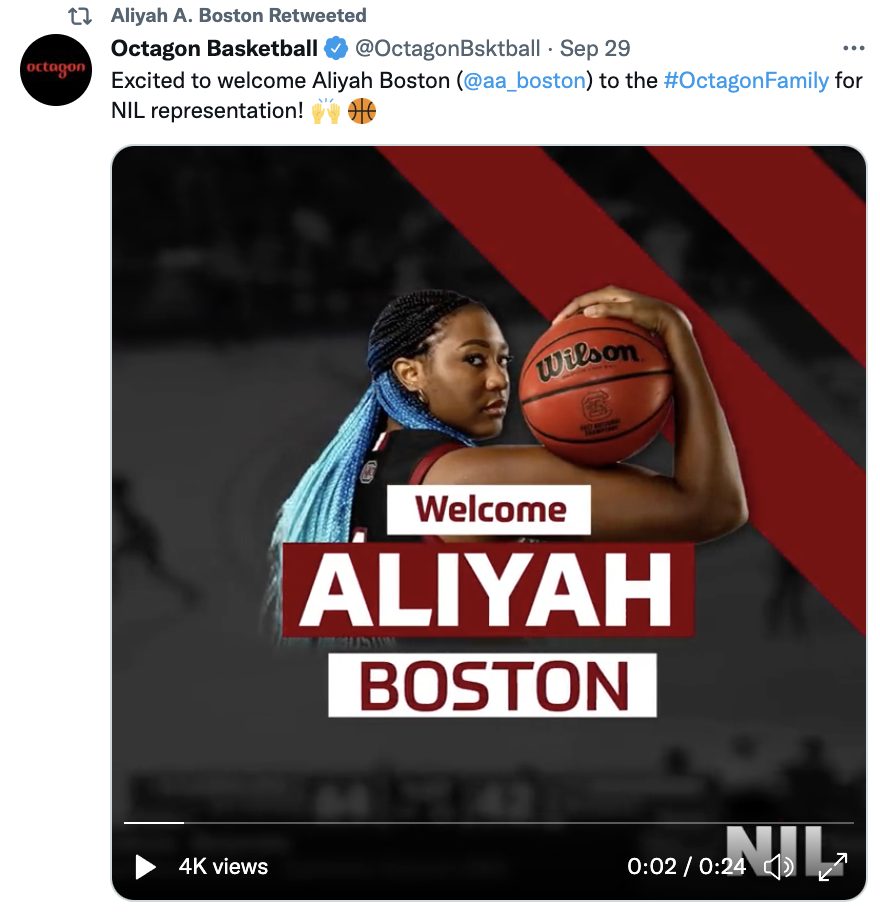
The process is heavily regulated
Just because the NCAA has changed its rules to allow athletes to profit off of their names does not mean that the governing body of college sports has abandoned the heavy regulation and compliance practices for which it is well known.
Ybanez, Negrete and Spangenberg all spoke about the need to work with Arizona State’s compliance office to ensure that their partnerships with Daniels are above board.
Negrete said that he has not yet been able to maximize the partnership with Daniels as much as he would like because under compliance rules, he has to be very careful not to associate Daniels with ASU in any way.
“Compliance has been very, very, very particular about what we can and can’t do with him,” Negrete said. “Like, with billboards [featuring Daniels], where I want to put them up around campus, compliance has been like, ‘Well, make sure he’s not in a football uniform because you don’t want to really translate who he is into being an ASU athlete, like you don’t want to confuse anyone.”
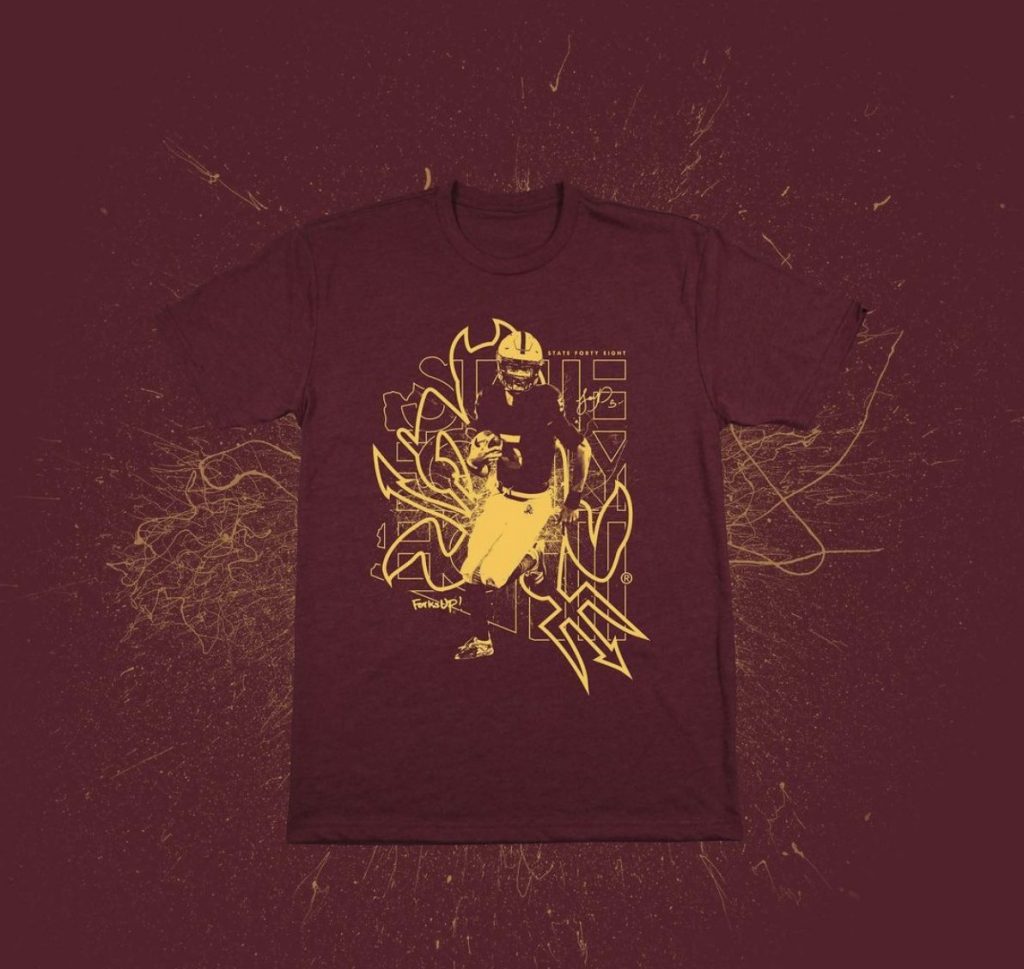
Because StateFortyEight already had a separate merchandise licensing deal with ASU, it was able to gain permission to feature Daniels in uniform on its clothing designs. However, it added even more complications to an extended negotiation process with Daniels’ camp. The deal was not announced on Daniels’ instagram page until Sept. 14, almost 10 weeks after the NIL window had opened.
“This has been in the works for months,” Spangenberg said. “Because we’re licensed with ASU [and] we have a great relationship with ASU, we were their first licensee to become an NIL licensee too. So there was a lot of things they had to work through and figure out the structure… getting the design approved and getting to what the NIL structure is, what royalties do we have to pay ASU, there’s a lot of different layers.”
Investing in the athlete
Ybanez played college football himself as a tight end at Army and Texas State and knows firsthand how impactful it can be for athletes to monetize off of their own image.
“That would have been a dream when I was playing,” Ybanez said. “I thought it was something that needed to be done by the NCAA and it probably took way too long to get done, and as soon as I kind of read the rules on it, I jumped all over it. I wanted to be kind of the first to do it. And as far as I know, I’m definitely the first club that I know of to sponsor any [NCAA] athletes kind of anywhere.”
Whereas Ybanez followed the NIL legalization process from the perspective of a former athlete, Negrete followed it from the perspective of an attorney as well as someone who had already done similar sponsorship deals with local professional athletes. Once the timetable for NIL implementation was finalized, Negrete–who completed his undergraduate and law degrees at ASU–knew exactly who he wanted to target for his first deal with a collegiate athlete.
“It was kind of a no-brainer or a natural fit if you will because Jayden Daniels is playing football at my alma mater,” Negrete said. “I’ve always advocated that I thought student athletes should get something more than their stipend or whatever they get for playing athletics.”
Ybanez and Negrete are not alone. There are many national advocates for NCAA athletes receiving compensation for their on-field performance and the massive amounts of money they generate for their schools. While those advocates have welcomed the new NIL rules, they believe it is just a start to leveling the playing field for athletes.
“The NIL is not full economic justice,” National College Players Association founder and executive director Ramogi Huma recently told the Washington Post. “It’s the position that, ‘Hey, if you want to get a second job, you’re free to do it and get paid.’ What about your first job?”
Investing in the community
When the Phoenix Suns, who also have a licensing deal with StateFortyEight, made an unlikely run to the 2021 NBA Finals, Spangenberg could not stock his online store with Suns t-shirts fast enough to keep up with demand, which he considers a testament to the power of sports.
“If we don’t start sponsoring these kids, you’re going to see a huge shift in recruiting and the places these kids choose to go based on sponsorships.”
J.D. Ybanez, Varsity Tavern
Though ASU is not considered a championship contender this season, it has still been “eye-opening” for Spangenberg to see the amount of interest in a Jayden Daniels StateFortyEight t-shirt.
“Sports in my opinion unites our community more than ever,” Spangenberg said. “We’ve had plenty of success and experience with the Suns. When they’re doing well, everyone needs a T-shirt. And then also a big part of it is that it keeps us relevant and keeps us reaching different demographics and audiences. It allows us to reach younger audiences and make sure we just continue to evolve.”
Ybanez, whose tavern is located near the ASU football stadium in downtown Tempe and ties its promotions directly to Sun Devil football games during the season, sees his partnership with Daniels as a community investment not just in the present but in the future.
“I think it’s extremely important for the community,” Ybanez said. “For any football community right now, now that this is a thing, it’s going to make recruiting a whole different ball game. It’s going to make college football, in that sense, you know, a lot more competitive. High school players coming out are going to see who’s getting sponsored, who’s making money at the end of the day, and if our community and our business owners in this community don’t get behind doing things like this and try to sponsor athletes in this way, you’re going to see college football swing in different directions.”
“If we don’t start sponsoring these kids, you’re going to see a huge shift in recruiting and the places these kids choose to go based on sponsorships. If you don’t see it that way, you’re blind to it. I’m not saying I’m doing something great, but… I hope more businesses do it for other players to make [ASU] more of a competitive school.”
Relationships are everything
A sponsorship is a relationship at its core, and all three business owners came into their respective sponsorships with Daniels with prior experience doing deals with professional athletes and teams. Negrete and Spangenberg also had an existing relationship with Alex Gurrero, Daniels’ marketing agent, that helped them get the ball rolling with Daniels.
Daniels’ mother, Regina Jackson, also helps with the day-to-day management of the deals, working directly with Spangenberg and Ybanez on everything from shirt designs to meet-and-greet scheduling.
“You have to have a relationship,” Spangenberg said. “I joke that I feel like I’ve become best friends with Jayden’s mom… It’s different than normal because we’re used to working with organizations and businesses whereas this is a little bit more entry level as far as conversations or experience. Jayden’s mom is his mom, not a marketing representative.”
Ybanez said he has also put other local businesses in touch with Daniels’ mother to talk about potential deals. StateFortyEight has sent care packages to college athletes across Arizona and Spangenberg is pleased with the reception that those have gotten. Negrete, meanwhile, has athletes reaching out to him from ASU’s basketball team as well as some other players represented by agencies that he already has relationships with and is having preliminary discussions about several sponsorship opportunities.
“It doesn’t seem to be much different, honestly, than the conversations I’m having with the agents that work for Mikel Bridges of the Suns right now,” Negrete said. “Those guys might be the same exact guys you talk to in the same exact style of conversation in terms of what we can offer and what they can offer. It just so happens to be that they’re college guys that they’re talking about versus pro guys that are already established.”


